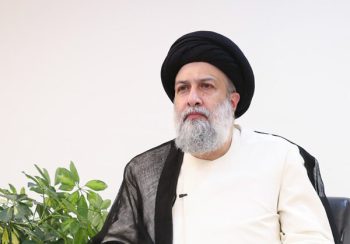
Title: Divine Mercy and Spiritual Renewal: A Path for the Faithful
In a recent address at the Hazrat Amir Mosque, Hojjatoleslam Seyed Mohammad Bagher Alavi Tehrani, a respected seminary scholar, offered profound guidance on spiritual devotion and the boundless nature of divine mercy, drawing from Islamic teachings.
The Universality and Specificity of Divine Mercy
Commencing his speech with a recitation from the Holy Quran, the scholar reflected on the verse, “And if Allah had willed, He could have made them one nation…” He elaborated that while God’s universal wisdom allows for human diversity, His mercy is granted to those who refrain from injustice. He emphasized that for those who commit wrongdoing, there is no protector or helper.
The Essence of True Worship
Referencing the divine response to the angels at the creation of humanity, the scholar highlighted that God desired a being of purpose, not merely a worshipper. He explained the two facets of divine mercy: “Al-Rahman,” which signifies a general mercy for all creation, and “Al-Raheem,” which denotes a special, everlasting mercy for believers. This special mercy, as narrated from Imam Sadiq (AS), is intrinsically linked to the guardianship of Amir al-Mu’minin Ali ibn Abi Talib (AS).
The Significance of Nightly Prayer
The sixth sign of a true devotee, the scholar noted, is finding joy in nightly worship. He clarified that such devotion can be fulfilled through reciting the Quran, seeking forgiveness, reading authentic supplications, or performing other prescribed remembrances, with the night prayer (Salat al-Layl) holding the highest rank.
Addressing a common concern for the spiritual seeker, he provided practical guidance based on the teachings of the Ahl al-Bayt (AS). If one is unable to perform the eleven rak’ahs of the night prayer, it can be made up (Qadha) during the day. If that is also not possible, one should at least perform the three rak’ahs of Shaf’ and Watr.
The Profound Blessings of Devotion
The scholar detailed the immense spiritual benefits of the night prayer, describing it as a conduit to the celestial realm. He listed over fifteen blessings mentioned by the Ahl al-Bayt (AS), including divine pleasure, the love of angels, following the tradition of prophets, enlightenment, physical tranquility, protection from Satan, and a shield on the Day of Judgment.
The Power of Sincere Repentance
Another key characteristic of a true believer, he stated, is sincere repentance (Tawbah). He clarified that repentance is accepted during one’s lifetime, before the signs of death appear. Repentance at the moment of death, as in the case of Pharaoh mentioned in the Quran, is not accepted. True repentance signifies a return to God and the commencement of sincere servitude.
To strengthen one’s resolve, the scholar pointed to a remedy from the Imams: listening to the Quran. The path to embodying the Quran involves four steps: recitation, listening, contemplation, and action. He cited verse 204 of Surah Al-A’raf, which presents listening to the Quran in silence as a precursor to divine mercy.
A Narrative of Transformative Mercy
The scholar concluded with a powerful narrative of a woman from Basra named Shahwana, who was once known for a life of transgression. One day, while passing a gathering, she heard a preacher reciting a verse describing the fury of Hell. The words struck her heart profoundly, leading her to desperately ask if there was any path back for someone as sinful as her.
The preacher responded with compassion, assuring her that God’s mercy is vast enough to encompass even the greatest of sins. Moved by this, Shahwana immediately repented with a broken heart. She not only abandoned her previous life but transformed her home into a place of Quranic remembrance and prayer, eventually becoming a renowned example of repentance and piety in her city.


